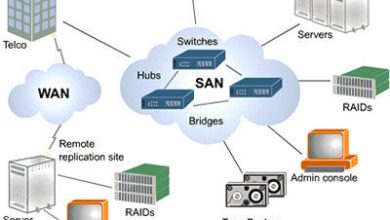How Fortinet Network Firewall Keeps Your Data Safe

What is a Fortinet network firewall?
Fortinet network firewall Malaysia is a device that defends your network from intruders. A firewall protects your network by operating as a continuous filter that constantly scans incoming data and blocks anything that appears to be suspicious.
To understand how a firewall operates, imagine it as a security guard well-versed in the millions of prospective criminals. When a burglar is seeing, the guard prevents them from entering the structure. Similarly, a firewall protects your network by keeping track of and controlling network traffic. Several techniques, including packet filtering, a proxy service, and stateful inspection, are using to achieve this.
Hardware or software, a firewall creates a barrier between your network and the internet or between specific network parts and the rest of your system. In addition to preventing harmful code from entering your network, firewalls can also stop an attacker from exploiting your system to disseminate destructive code by inspecting data as it enters and leaves your system.
Hardware Firewalls
As it filters information entering the system from the internet, a hardware firewall is a system that operates independently of the machine it is protecting. Your broadband internet router likely has a firewall built in.
A hardware firewall examines the security of the data entering your system from different areas of the internet. Each data packet is read by hardware firewalls that employ packet filtering to determine its origin and destination. The information the firewall gathers about each package is then checked to see if it fits the data description that should ignore. All machines connected to a hardware firewall are protected, making it an easily scalable solution.
Software Firewalls
A software firewall is software that a computer uses to check the data that enters and leaves the device. The user can modify it to suit their needs. Software firewalls filter data similarly to hardware firewalls by determining if the data or its behaviour fits the profile of harmful code.
Software firewalls can also keep an eye on the traffic that is trying to leave your computer, preventing it from being exploit to attack different networks or gadgets. Each machine connected to the network needs to have a software firewall installed. A software firewall can only shield one computer at once as a result.
Firewalls employ different techniques to secure your computer or network. These are a few of them:
Packet Filtering
Packets are using to arrange data. When a firewall does packet filtering, it looks at the data packets and compares them to filters, which are collections of data intended to spot dangerous material. A data packet is discarded, and your network is secured if it satisfies the requirements of a threat as specified by a filter. Data packets that have been certified secure are permitted to transit.
Proxy Service
When using a proxy service, the firewall serves as a middleman between anything attempting to connect to your computer and it. A proxy firewall acts as a mirror of your computer and can identify malicious actors trying to access your system.
Because they keep your computer and the internet apart, proxy firewalls are a secure solution. To attack your computer, attackers frequently need to connect directly to it. Hackers cannot establish a direct connection to your computer because a proxy stands between it and the internet, making their attack ineffective.
Proxy servers can’t handle some applications, though, and if one of them is crucial to your company, this could be problematic. For instance, while interacting with a proxy, QWebView, Spotify, and Google Play have all being reporting to experience difficulties. Additionally, brokers typically operate more slowly than other firewalls, which could impair throughput and affect critical business activities.
Stateful Inspection
Every data packet is examining by a stateful inspection firewall, which then compares it to a threat database. The firewall examines the data’s origin, the ports it utilises, and the applications it is connecting to during the inspection process. The data packet is permitting to pass if everything checks okay. If not, it is thrown away.
Stateful inspection can also gather data about the data packets that pass through it and utilise that knowledge to learn more about data that may one day constitute a concern.
How Does a Firewall Protect Data?
Your computer is being protect from hazardous data by firewall filters. Backdoors, DoS attacks, macros, remote logins, spam, viruses, and other common hazards are some from which firewalls shield your computer.
Backdoors are “doorways” to vulnerable apps that attackers can use to gain access. Included are operating systems that might contain bugs that hackers could use to access your machine.
DoS attacks are launching when a hacker asks for authorisation to connect to a server, but the server cannot identify the system that sending the request when it responds. When repeated repeatedly, the server becomes overload and uses so much energy to handle a large number of bids that it cannot accommodate real users. The server may need to shut down in specific circumstances. Some firewalls can verify the legitimacy of connection requests, defending your network from DoS assaults.
Macros are scripts that are executing by programmes to automate tasks. A macro can have a chain of connecting actions that are all start by the same command. Hackers create or buy macros meant to function inside specific software. When a macro enters your computer, it might be conceal in seemingly innocent data and cause havoc on your system. When a firewall inspects the data packets that attempt to pass through, it can find dangerous macros.
To assist someone with a computer issue, remote logins are frequently employ. However, they can be exploit if they are in the wrong hands, especially since remote logins give almost total access to your system.
Spam occasionally contains links to dangerous websites. These websites use malicious software that puts cookies onto a user’s machine. For hackers to access the computer, the cookies build backdoors. Regardless of who the sender appears, avoiding clicking on anything odd in an email can frequently prevent a spam attack. A firewall can examine your emails and guard against computer infections.
Once on a computer, viruses replicate themselves and spread to further computers connected to the network. Viruses have a wide range of applications, from destroying data from your computer to relatively harmless activities. Firewalls can check data packets for viruses; however, it is preferable to utilise antivirus software in addition to a firewall to optimise protection.
Bottom line
Firewall is a critical part of your cybersecurity defense plan. It can help protect your data from unauthorized access and keep your business safe from cyber threats. Contact Spectrum Edge today to find out more about our firewall solutions and how we can help you protect your data.
Do a share if you found this article useful, and check out more fascinating articles at Article Rod as well ! Ciao !
Kindly visit to learn more about: Fortinet network firewall Malaysia





